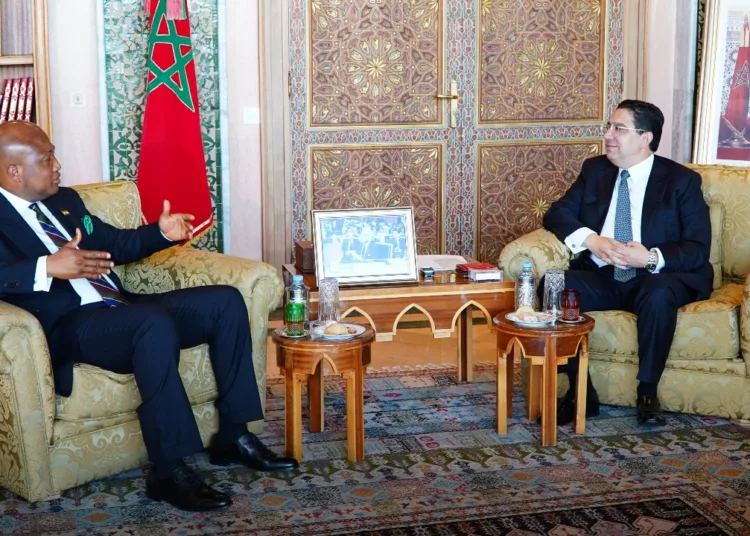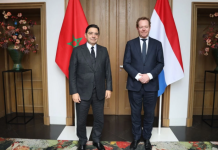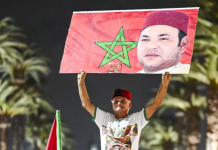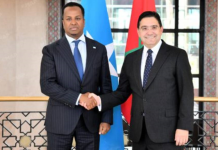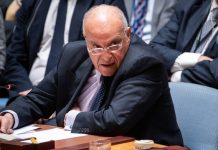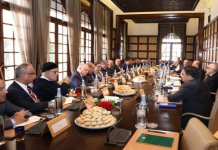- Tebboune’s regime continues to face isolation as they insist on fully backing the separatist Polisario Front, which frequently receives calls to be designated as a terrorist organization
Rabat — In another diplomatic setback for Algeria, Ghana has once again reaffirmed its support for Morocco’s Autonomy Plan as the only viable solution to the Western Sahara dispute. This comes just months after Algeria claimed that Ghana had reversed its stance on the issue — a claim that has now been officially dismissed.
In a joint statement signed in Rabat by Moroccan Foreign Minister Nasser Bourita and his Ghanaian counterpart, Samuel Okudzeto Ablakwa, last Friday, Ghana recognized “the exclusivity of the Autonomy Plan presented by the Kingdom of Morocco in 2007 as the only realistic and sustainable basis for a mutually acceptable solution” to the regional dispute.
This declaration reinforces Ghana’s decision on January 7, 2025, to withdraw its recognition of the self-proclaimed “SADR” (so-called Sahrawi Arab Democratic Republic). The move aligns Ghana with the growing international consensus in support of Morocco’s territorial integrity and sovereignty over its southern provinces.
Ghana’s Ministry of Foreign Affairs and Regional Integration confirmed that it had communicated this position to Morocco, the African Union, and the United Nations through official diplomatic channels. The ministry emphasized Ghana’s backing for the “good-faith efforts made by the Kingdom of Morocco to reach a solution accepted by all parties.”
Ghana had originally recognized the Polisario-led “SADR” in 1979 but has now decisively shifted its position in line with over 113 countries — more than 60% of UN member states — that support Morocco’s Autonomy Plan as the most credible political framework to resolve the conflict.
This reversal is part of a broader regional trend. Kenya, once considered a stronghold of pro-Polisario sentiment and a vocal ally of Algeria’s stance on the Sahara, has also announced its support for Morocco’s proposal. These developments signal a growing momentum in favor of Morocco’s sovereignty, leaving Algeria’s foreign policy increasingly isolated.
Adding to Algeria’s diplomatic frustrations, the United Kingdom — a permanent member of the UN Security Council — recently expressed its clear endorsement of Morocco’s Autonomy Plan. The UK’s support is more than symbolic; it adds significant international weight to Morocco’s position.
Moroccan author and political analyst Samir Bennis reflected on Ghana’s recent reaffirmation of support for Morocco’s autonomy plan, describing it as a significant diplomatic blow to the Algerian regime. In a statement shared on his social media, Bennis emphasized that Ghana’s clear and official endorsement of the Moroccan initiative further isolates Algeria in its long-standing support for the Polisario Front.
Bennis noted that Ghana, once among the countries that recognized the self-proclaimed “SADR” based in Tindouf, has now decisively aligned itself with Morocco’s sovereignty. He highlighted Ghana’s recognition of the autonomy plan as the “sole realistic” solution to a mutually acceptable political resolution of the Sahara dispute.
The Moroccan analyst also pointed out that Ghana’s position follows similar endorsements from both Kenya and the United Kingdom in recent weeks, further strengthening Morocco’s diplomatic momentum. He remarked that this growing international backing underscores the diminishing influence of Algeria, which for decades relied on the African Union and oil revenues to promote its separatist agenda in the region.
Bennis concluded by asserting that Algeria is now facing the “irreversible collapse of the house of cards” it built over years—an artificial construct, he implied, that is increasingly out of step with the changing geopolitical realities.
According to recent figures from Morocco’s Ministry of Foreign Affairs, over 113 countries around the world support the moroccan autonomy plan.
On the other hand, 46 countries, including 13 African nations, have cut or frozen their ties with the Polisario since 2000. The increasing number of countries distancing themselves from the separatist group highlights the shifting dynamics on the global stage — where realism and pragmatism are replacing outdated allegiances.
BY: The Times Union



